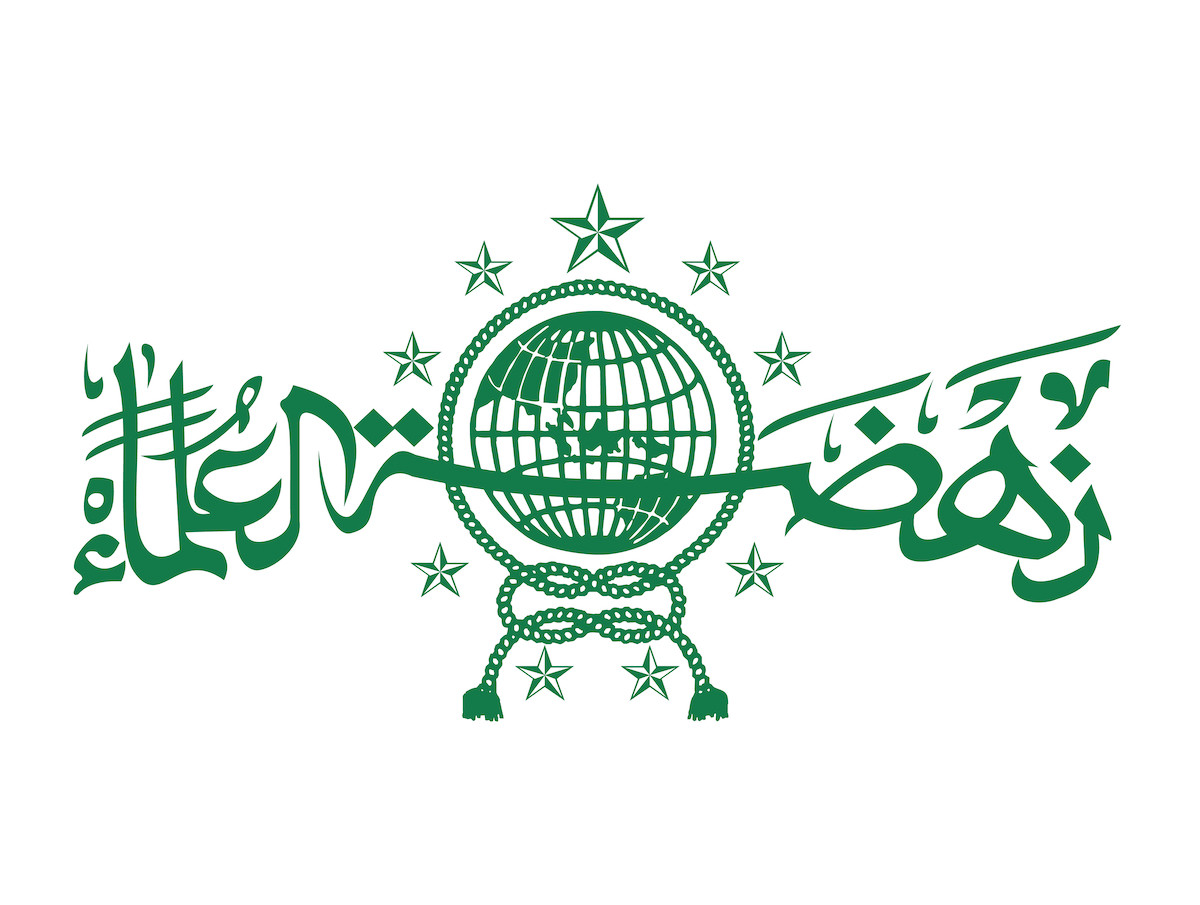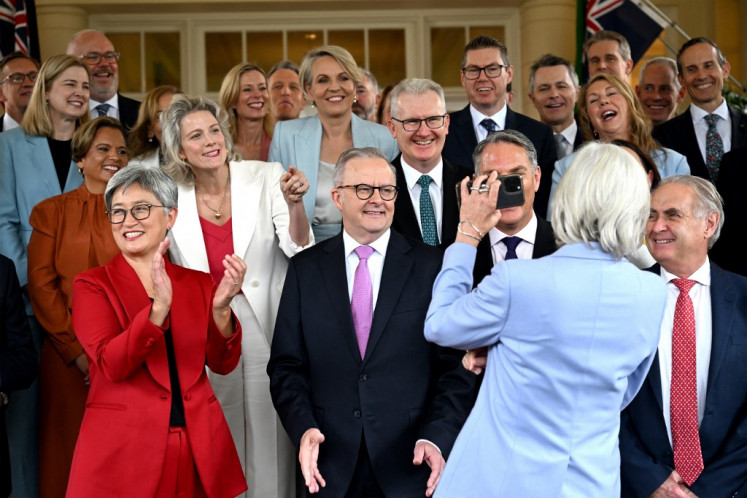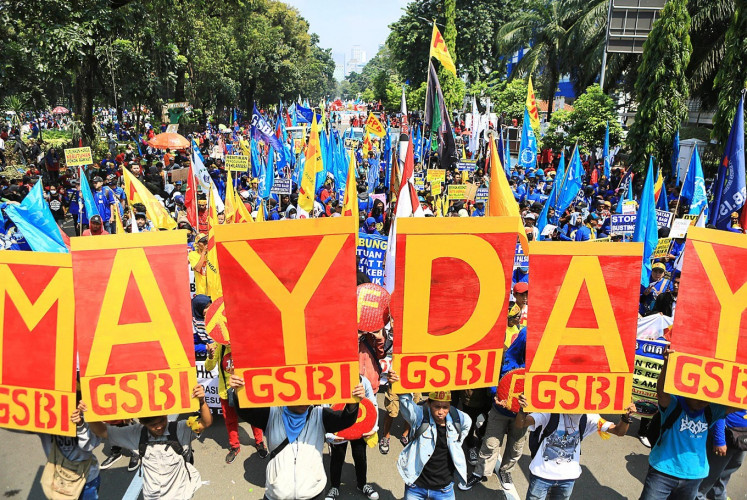A century of NU: Aswaja, ‘fiqh’, new platform of Islam
The country's largest Muslim organization prepares to mark its centenary with a Civilization Congress, seeking to legitimize and incorporate human rights within its ideological fold.
Change text size
Gift Premium Articles
to Anyone

N
ahdlatul Ulama (NU), Indonesia’s largest Islamic organization, celebrates on Feb. 7 its centenary of establishment according to the Islamic calendar by holding a Civilization Congress. The congress aims to look into the Islamic jurisprudence of fiqh to establish a new platform of Islam based on NU’s guiding principle of Ahlusunnah wal Jamaah, or Aswaja for short, meaning “to live by the example of the Prophet and his companions”.
According to its terms of reference, the congress’s discussions are to center around how Islam or fiqh places and legitimizes the existence of the United Nations, which has become the basis for the establishment of nation-states, which in turn have become the basis for recognizing human equality and upholding human rights within the UN-recognized boundaries of nation-states. Therefore, although there are still critics of the UN, its foundations for peace and coexistence among nation-states have become the basis for eradicating political identity and sources of social polarization.
The UN’s establishment was a departure from the previous condition and concept, under which people were grouped based on their religion, ethnicity or other primordial aspects, and a state’s boundaries were set based on military might that legitimized invasions into and even the annexation of other states. In such a system, discrimination, violence and war were the norms.
Among Islamic and Muslim-majority states, the UN’s existence has never been questioned in principle because it strongly legitimizes their statehood and recognizes their boundaries. However, the Universal Declaration of Human Rights (UDHR), which enshrines the rights and freedoms of all human beings and was adopted by the United Nations General Assembly, has never been accepted or adopted fully by Islamic or Muslim-majority states, which consider it contrary to or at least different from Islamic law, or sharia. As a result, equality of citizens is still a problem in many Islamic and Muslim-majority states.
Almost all Islamic and Muslim-majority states place Islam high as the basis for their constitutions, which has an implication in the treatment of their own citizens. To mention a few examples, Malaysia has positioned Yang di-Pertuan Agong, or the Supreme Head of the Federation, as the guardian of Islam and Malay traditions. Brunei Darussalam only recognizes Muslims who belong to the Shafi’i school as worthy citizens, while in Pakistan, the constitution places the Quran and Hadith in its constitution as the sources of law, as does Iran.
The implication of these on the practice of statehood in Islamic and Muslim-majority countries is not only discrimination against non-Muslim citizens, but also against fellow Muslims who diverge or differ from the majority sect.
Even in Indonesia, whose constitution is not based on a particular religious identity but on the state ideology Pancasila and the state motto Bhinneka Tunggal Ika (Unity in Diversity), yet the Muslim majority is still often involved in discrimination by forcing the state to support them.
This is all due to the fiqh platform, which is still based on a societal model before the existence of nation-states and was forcibly implemented on the nation-state platform. In these Islamic and Muslim-majority countries, while their physical forms may follow the principle of geographic territorial boundaries as per the UN consensus, but they employ a pre-nation-state societal model: religious identity.
Human rights has been continuously debated in the Islamic world. For example, the Cairo Declaration on Human Rights in Islam (CDHRI), which was adopted in 1990 by the Organisation of Islamic Cooperation (OIC), tried to accommodate the basic idea of the principle of human rights from an Islamic perspective. However, the declaration actually led to identifying differences and incorporating religious political identity in crucial articles, such as those regarding the role of women, marriage and the right to religion and changing religion.
In 2022, the OIC completed a draft review of the Cairo Declaration by drawing closer to the UDHR's version of human rights concepts and principles. However, it still carries a number of Islamic identities.
As in the realm of Ahlusunnah wal Jamaah or Aswaja, which NU and most of the Islamic world adhere to, principled issues such as human rights are not only a matter of identity but also a matter of authority. Such principled issues cannot only be left to state representatives as in the OIC, as they involve questions regarding the validity of methodology, religious authority and traditions inherent in Muslim society.
This is different from the traditions of thought and life in the West and possibly the Christian world, where political affairs, including human rights, can be delegated to the state in a system that separates religion and state.
In the history of Aswaja, fiqh is actually not the realm of the state but the realm of civil society, the Muslim clerics or ulema. The government can adopt the results of ulema-determined Islamic rules, or ijtihad, and Islamic traditions as the basis of positive laws. Alternatively, ulema can also influence the government to adopt their views in positive laws.
In contrast to the Islamic modernists who view Islamic ideology as the main foundation of the state, Aswaja places political processes and social functions as a mechanism to influence the state. Aswaja’s measure of a state is not in terms of ideology but more in terms of the functions that influence society in general: justice and prosperity.
Therefore, in Aswaja, human rights principles should not be measured by ideology and religious or Islamic identity, but by how they function for society in general. It is within this framework that the NU Civilization Congress in Surabaya will seek to provide legitimacy for the enactment of human rights principles in Islamic society and a Muslim-majority state. This is where the actual transformation is being carried out by the new NU leadership under K.H. Yahya “Gus Yahya” Cholil Staquf, and thus the word “civilization” is included in the name of the upcoming congress.
-- The writer is dean of the Islam Nusantara faculty at the Nahdlatul Ulama University of Indonesia (UNUSIA) and a visiting researcher at the National Research and Innovation Agency (BRIN).









